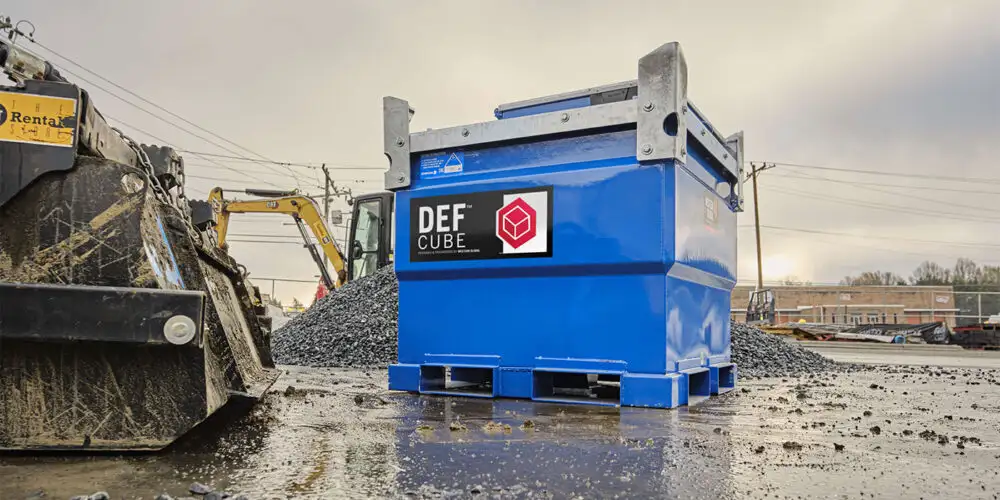In today’s world, businesses are increasingly focusing on sustainability—not just to meet regulatory requirements, but also to reduce their environmental impact and improve their brand reputation. For companies with fleets of vehicles, fuel consumption and emissions are often among the biggest contributors to their environmental footprint. Fortunately, the rise of Full-Service DEF and Diesel Fuel Solutions is making it easier for fleet managers to operate more sustainably while maintaining efficiency.
This article explores how Fuel Delivery Services, Diesel Exhaust Fluid (DEF), and fuel-efficient practices can help fleets become greener and meet their sustainability goals.
1. Reducing Emissions with Diesel Exhaust Fluid (DEF)
One of the most significant ways that fleets can reduce their environmental impact is by using Diesel Exhaust Fluid (DEF). DEF is a non-toxic solution that helps reduce harmful nitrogen oxide (NOx) emissions, which are a major contributor to air pollution. For fleets with diesel-powered vehicles, DEF is essential for complying with emissions regulations and reducing the fleet’s overall environmental footprint.
How DEF Works
DEF is used in diesel engines equipped with Selective Catalytic Reduction (SCR) systems. When DEF is injected into the vehicle’s exhaust stream, it breaks down nitrogen oxide into nitrogen and water vapor, both of which are harmless to the environment. This process allows diesel engines to meet stringent emissions standards without sacrificing performance.
By using DEF delivery services from providers like T&R, fleet managers can ensure that their vehicles have a consistent supply of DEF, allowing them to reduce emissions and stay compliant with environmental regulations.
2. Fuel Delivery Services: Optimizing Fuel Efficiency
Fuel efficiency is one of the most important factors in reducing a fleet’s environmental impact. The more efficiently a vehicle uses fuel, the fewer emissions it produces. Fuel Delivery Services play a key role in helping fleets manage fuel consumption effectively by providing high-quality diesel fuel and optimizing delivery schedules.
How Fuel Delivery Improves Efficiency
- Tailored Delivery Plans: Full-service fuel providers, such as T&R, offer customized fuel delivery schedules that are based on a fleet’s specific needs. This ensures that vehicles always have the fuel they need without wasting resources. By optimizing fuel deliveries, fleet managers can avoid over-ordering, which reduces fuel waste and emissions from fuel transport.
- Fuel Quality and Consistency: High-quality diesel fuel burns more efficiently, which helps reduce emissions and improve vehicle performance. Fuel delivery services ensure that fleets receive consistently high-quality fuel, reducing the risk of engine problems or inefficient fuel use.
- Reduced Idle Time: When drivers have to stop at public fuel stations, they often end up wasting time idling in line. This not only wastes fuel but also increases emissions. By delivering fuel directly to the fleet’s location, T&R’s fuel delivery services eliminate the need for fuel station stops, reducing idling time and improving overall fuel efficiency.
By optimizing fuel use and reducing waste, Fuel Delivery Services can significantly reduce a fleet’s environmental footprint while helping to cut fuel costs.
3. Lubricant Delivery: Extending Engine Life and Reducing Waste
While fuel consumption is a major factor in fleet sustainability, it’s not the only consideration. The condition of a vehicle’s engine also plays a crucial role in its environmental impact. Well-maintained engines run more efficiently and produce fewer emissions. Lubricant delivery services provide fleets with the high-quality oils and fluids they need to keep engines in top condition, reducing waste and improving performance.
The Role of Lubricants in Fleet Sustainability
- Reducing Engine Wear: Using high-performance lubricants helps reduce friction between engine parts, which minimizes wear and tear. This allows engines to run more smoothly, reducing fuel consumption and emissions.
- Extended Maintenance Intervals: Modern lubricants are designed to last longer between changes, allowing fleets to reduce the frequency of oil changes. This not only cuts down on lubricant waste but also reduces the number of maintenance stops, further improving fleet efficiency.
- Proper Disposal: One often-overlooked aspect of sustainability is the proper disposal of used oils and lubricants. By working with a lubricant delivery service like T&R, fleet managers can ensure that used lubricants are disposed of responsibly, minimizing environmental harm.
By keeping engines running efficiently and reducing the need for frequent maintenance, lubricant delivery services contribute to a more sustainable fleet.
4. Reducing the Carbon Footprint of Fuel Deliveries
Fuel deliveries themselves can contribute to a fleet’s environmental impact. The transportation of fuel generates emissions, and inefficient delivery schedules can result in wasted resources. However, Full-Service DEF and fuel delivery solutions are evolving to reduce the carbon footprint of fuel deliveries.
Eco-Friendly Delivery Solutions
- Efficient Delivery Routes: Full-service fuel providers are increasingly using data-driven systems to optimize delivery routes, reducing the distance that fuel trucks need to travel. This reduces emissions from fuel transport and ensures that deliveries are as efficient as possible.
- Bulk Deliveries: By delivering fuel and DEF in bulk, providers like T&R can reduce the number of trips required to meet a fleet’s needs. Fewer deliveries mean fewer emissions and a smaller environmental impact.
- Eco-Friendly Fuel for Delivery Trucks: Some fuel providers are beginning to use alternative fuels, such as biodiesel, for their delivery trucks. This reduces the emissions generated by fuel deliveries and aligns with the broader goal of sustainability.
By optimizing delivery routes and adopting greener practices, fuel providers are helping fleets reduce their carbon footprint while maintaining efficient operations.
5. Fuel Management and Reporting for Sustainability
To make meaningful progress toward sustainability, fleet managers need to be able to track and measure their environmental impact. Full-service fuel solutions often include fuel management systems that provide detailed reports on fuel consumption, DEF usage, and emissions. These reports allow fleet managers to monitor their progress and identify areas for improvement.
Tracking Environmental Performance
- Fuel Usage Reports: With access to real-time data on fuel consumption, fleet managers can identify trends and inefficiencies that may be contributing to excess emissions. By analyzing this data, they can implement fuel-saving practices and optimize routes to reduce fuel use.
- Emissions Tracking: Fuel management systems can also provide insights into a fleet’s emissions, allowing managers to see how their sustainability efforts are paying off. These reports can be used to demonstrate compliance with environmental regulations and showcase the fleet’s commitment to sustainability.
- Sustainability Goals: Many companies are setting sustainability goals, such as reducing their carbon footprint by a certain percentage. With accurate data from fuel management systems, fleet managers can track their progress toward these goals and make adjustments as needed.
By providing valuable insights into fuel consumption and emissions, fuel management systems help fleets stay on track with their sustainability efforts.
6. Future Trends in Sustainable Fleet Management
As technology continues to evolve, new solutions are emerging that will further enhance the sustainability of fleet operations. Full-Service DEF and Diesel Fuel Solutions are expected to play a key role in these future trends, helping fleets reduce their environmental impact while maintaining efficiency.
Innovations on the Horizon
- Electric and Hybrid Fleets: While diesel fuel will remain essential for many fleets in the near future, the transition to electric and hybrid vehicles is gaining momentum. Fuel providers like T&R are beginning to explore how they can support the needs of electric fleets, such as providing charging infrastructure alongside traditional fuel and DEF solutions.
- Greener Fuel Options: The development of cleaner-burning fuels, such as biodiesel and renewable diesel, is expected to continue. These fuels offer a more sustainable alternative to traditional diesel, helping fleets reduce their greenhouse gas emissions without making major changes to their vehicles.
- Smart Fleet Management: Advances in telematics and AI-driven systems will make it easier for fleet managers to optimize fuel use, monitor emissions, and improve sustainability. By integrating these systems with full-service fuel solutions, fleets will be able to make real-time adjustments that minimize their environmental impact.
As these trends take shape, Full-Service DEF and Diesel Fuel Solutions will continue to evolve, providing fleets with the tools they need to operate sustainably.
Conclusion: Embracing Sustainability with Full-Service Fuel Solutions
Sustainability is becoming a top priority for fleet managers, and Full-Service DEF and Diesel Fuel Solutions are a key part of the strategy to reduce emissions and minimize environmental impact. From fuel-efficient practices to eco-friendly delivery services, businesses can make significant progress toward their sustainability goals by working with reliable providers like T&R.
By embracing these solutions, fleet managers can operate more efficiently, reduce fuel waste, and meet their environmental responsibilities, all while keeping their vehicles running smoothly and compliant with regulations.




